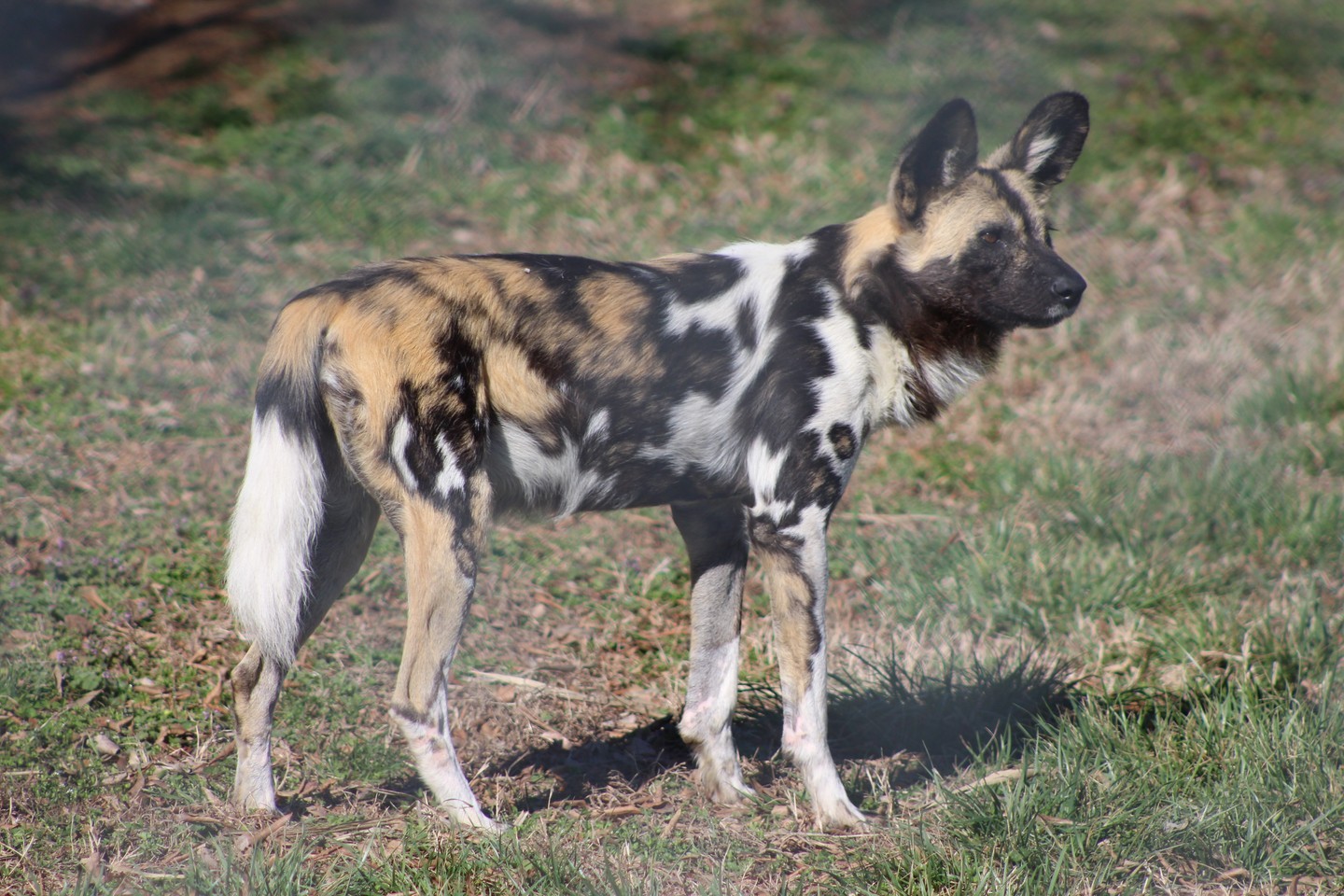Summary:
1. Introduction to African Painted Dogs.
2. Kasama’s health issues and the decision to euthanize her.
3. The care and relationship between keepers and Kasama.
4. The significance of Kasama’s age.
5. The emotional impact of Kasama’s loss on the zoo and its staff.
We’re sad that we recently said goodbye to one of our beloved animals, Kasama, an African Painted Dog. Kasama’s health had deteriorated due to kidney disease and Degenerative Myelopathy, which caused muscle atrophy and rear limb weakness. After carefully monitoring her quality of life, the difficult decision was made to humanely euthanize her. In this post, we will explore the unique and fascinating aspects of African Painted Dogs, the efforts to care for Kasama, and the impact her loss has had on our zoo.
African Painted Dogs, also known as African Wild Dogs or Cape Hunting Dogs, are fascinating creatures. They are highly social animals, living in packs with a complex social structure. Each pack is led by an alpha pair, and other members assist in raising the young and hunting for food. They are incredible hunters, with a success rate of about 80% in their hunts. Their large round ears and unique coat patterns make them a visually striking species.
Kasama was remarkable in her species, and the zoo and its staff deeply felt her loss. Our dedicated keepers developed a special bond with Kasama through training sessions, engaging fence line jogs, and connecting guests with her to educate them about African Painted Dogs. They were enchanted by her large ears, which would perk up as she responded to their calls. The keepers considered themselves lucky to have had the opportunity to work with Kasama during her time at the Tulsa Zoo.
At 11 years old, Kasama was the second oldest African Painted Dog under the care of the Association of Zoos and Aquariums. This is a remarkable achievement, considering the average lifespan of these dogs in the wild is only 6 to 8 years. Kasama’s longevity speaks to the expert care provided by the zookeepers and the commitment of the Tulsa Zoo to the welfare of its animals. It is a testament to the collective efforts to ensure her well-being and quality of life.
The decision to euthanize Kasama was not made lightly. The zoo’s animal care staff closely monitored her mobility, appetite, and temperament to determine the best action. Degenerative Myelopathy caused increasing muscle atrophy and rear limb weakness, impacting Kasama’s overall quality of life. To provide her with a peaceful end, the humane option of euthanasia was chosen. While a difficult decision, it was ultimately the most compassionate choice for Kasama.
Losing Kasama has had a profound impact on the zoo and its staff. She was a beloved member of their family, and her presence will be sorely missed. The emotional connection between keepers and animals is special, as they form bonds through shared experiences and daily interactions. The loss of an animal like Kasama is deeply felt by everyone who cared for her.
In conclusion, the loss of Kasama, the African Painted Dog, has left a void at the Tulsa Zoo. As we reflect on her life, we are reminded of the unique nature of African Painted Dogs and the dedicated care provided by our keepers. Kasama’s age was a remarkable achievement, showcasing the success of the zoo’s commitment to conservation and animal welfare. While her loss is deeply saddening, we are grateful for our time with her and the lessons she taught us about this incredible species.
*****
Source Description
We’re sad to share that our African Painted Dog, Kasama, was humanely euthanized on Friday. Kasama had been diagnosed with kidney disease and Degenerative Myelopathy, which causes muscle atrophy in the rear and rear limb weakness. Our animal care staff had been carefully monitoring her quality of life, particularly watching for decreases in mobility and appetite and changes in temperament. At 11 years old, she was the second oldest of her species in the Association of Zoos and Aquariums care.
Keepers enjoyed jogging along the fence line to engage with her, training her and connecting guests with her to teach them about African Painted Dogs. They loved watching her large ears moving around as she was being called inside and felt lucky to have worked with her during her time at Tulsa Zoo. She will be missed.


